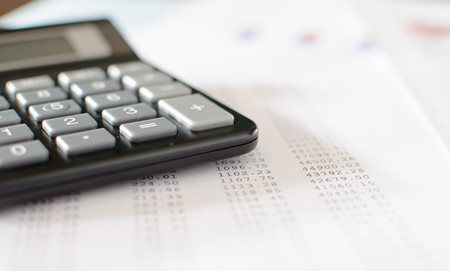Despite our best intentions to be responsible adults with a budget, there is one thing we are never immune to: unexpected expenses. We’ve all been there. You get into an accident. You get a mysterious illness that puts you in the hospital. A family member passes away unexpectedly.
Unexpected expenses can bring a lot of emotional and financial stress to anyone’s life, but planning for unexpected expenses, large or small, can be the difference between an annoyance and a financial disaster. Oftentimes, being emotionally stressed continues the cycle of debt, so being prepared ahead of time can save you from further debt. Here are some ways to deal with those unexpected life occurrences.
Create an Emergency Fund
Having an emergency fund is essential for dealing with unexpected expenses. An emergency fund is, well, for emergencies. If you can’t pay your rent with what is in your checking account, that is an emergency. An emergency fund is different from savings because it’s purely for unforeseen crises, whereas a savings account can be for a variety of things that have been planned for. Having liquid resources available in time for emergencies can help you sleep well at night, and deal with unexpected expenses without adding to the stress. Yes, it’s hard to part with a large amount of money, but you will be so glad it’s there!

Ideally, you should have three to six months of expenses in your emergency fund. If you are dealing with large amounts of debt, consider bringing it down to 1-2 months, but be prepared to take on additional loads should something arise.
Plan for It
Do you have unexpected expenses coming up every month? A tax bill? A new prescription? Root canal? Everyone has items in their budget that come in at different times of the year, and things that legitimately come up out of the blue.
One of the biggest criticisms against traditional budgeting is that it can be too rigid to deal with unexpected expenses. Just like anything you are trying to save and budget for, add a line item to your budget called “unexpected.” Give yourself a little wiggle room so that when things happen, you aren’t feeling strapped for cash and saddled with guilt because you went over budget.
Borrow (only as a last resort)
I will be the first to say that I am against borrowing money to pay for unexpected expenses. However, I understand that things don’t always happen the way we plan, and we aren’t always prepared to deal with the aftermath. If you must pay for an emergency on a credit card, or take out a loan from a family member, do yourself a favor and pay it back as soon as possible. Not as soon as it’s convenient for you, but as soon as possible. I personally think you are likely to get in more debt/stay in debt after dealing with so many unexpected expenses and changes in life. It’s a vicious cycle, so don’t get started on that path. Use credit wisely, and only for the reasons you need it. Pay it back immediately, and at least get some airline miles or reward points out of it!
Learn From It
It’s easy to get in a perpetual mode of feeling down if you deal with unexpected expenses and fall behind on your financial goals. I can tell you from firsthand experience that feeling down about it won’t help you get back on track (sad, I know). You can let yourself feel bad maybe for a minute, but then accept it, move on, and resolve to do better and learn from the experience. No one is perfect and we are all learning as we go.
Even in this chaotic world, you can still try your best to prepare for the unexpected. It’s part of the journey and part of your story. Start stashing away a few more bucks each month to be prepared for the next iteration of bad luck.
It’s not you, it’s just how life is. So show it who’s boss.